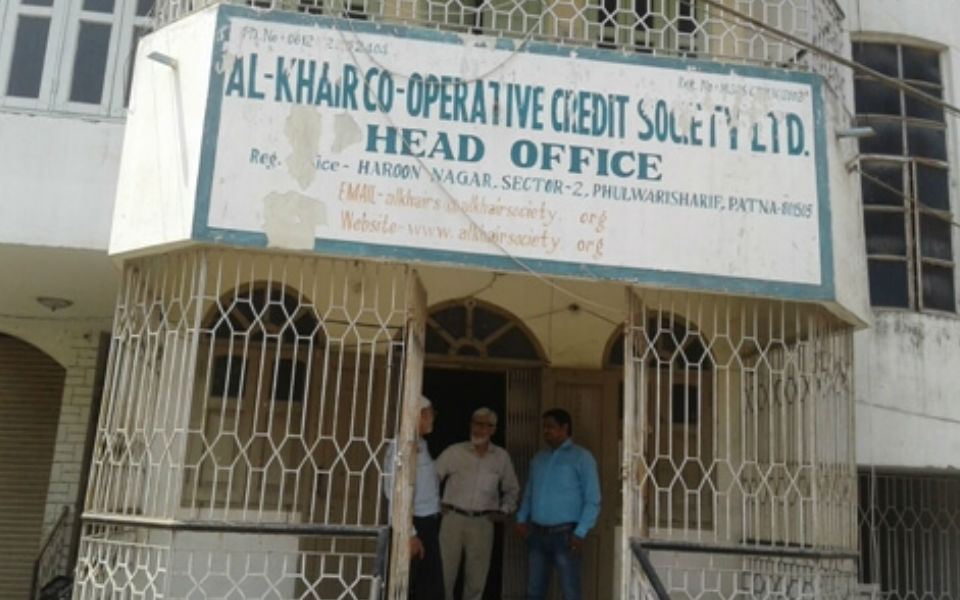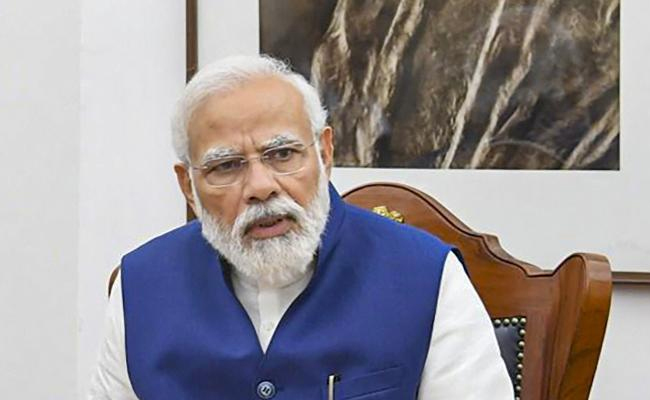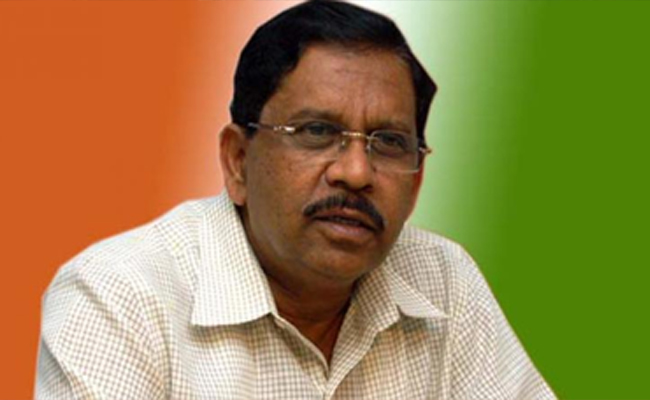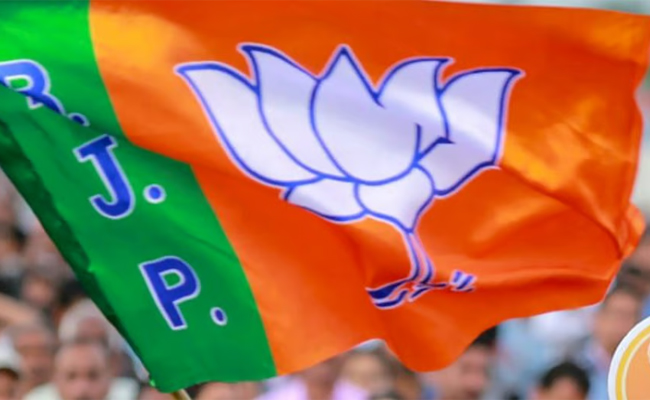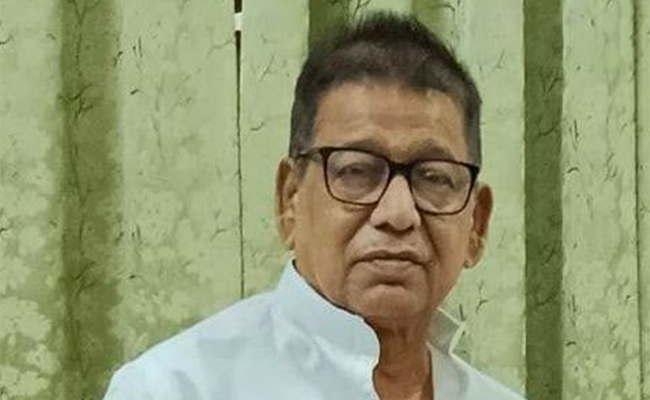The Patna based Al-Khair Cooperative Credit Society Ltd is an exemplary model of providing interest-free finance to improve the lives of some of the most improvised members of society irrespective of their religion, caste, or creed, while at the same time being a sustainable business model.
The story of Al-Khair began in 1998 when some members of Patna's Muslim community formed a charitable trust to help the disadvantaged members of their society. But they soon realised the enormity of the task at hand, and after a great deal of deliberation, the founders decided to set up a micro-finance cooperative.
In 2002, with initial capital provided by some 20 odd persons, the Al-Khair Cooperative Credit Society was registered under the Multi-State Cooperative Societies Act of 2002 (Government of India). Its unique feature is that it is a completely interest-free micro-finance institution.
According to their website,alkhairsociety.com, their main objectives are:-
- To fight poverty through cooperation.
- To defeat the cruel system of interest-based privateer money-lending which is eroding the productive capacity of micro-entrepreneurs.
- To finance enterprises that create self-sustainable economic system and helps in reducing poverty.
- To provide all kinds of social benefits to its members in order to enhance the lives of their members.
Al-Khair has seen a tremendous response from all sections of society. What started a decade and a half ago with a small office in Patna and two employees, today has 100 employees in 13 branches spread across the states of Bihar, Jharkhand, Uttar Pradesh and Delhi.
In that time, it has disbursed interest-free loans in excess of Rs 50 crore to nearly 20,000 people, most of whom are micro-entrepreneurs on the very bottom of the economic pyramid.
What makes Al-Khair an attractive option to the poor, many of whom are not literate, is that unlike banks, Al-Khair was conceived to serve the poor and requires minimal paperwork to open an account.
More importantly, when people are unable to secure a bank loan, which is quite often in the case of underprivileged and low-income people, they are forced into the clutches of private money-lenders who charge cripplingly high-interest rates. Al-Khair has proven to be a low-risk alternative to the private money-lenders.
From its very inception, Al-Khair intended to be an inclusive organisation by offering its facilities to all sections of society irrespective of ones cast or creed. And so it has been a great boon for large sections of marginalised people, skilled and unskilled, from unorganized sectors such as small traders, roadside shopkeepers, marginal farmers, and women.
"Even a small amount of five to ten thousand is significant for people who don't have access to banks," said Nayiar Fatmi, managing director of Al-Khair Society.
"Interest-free loans may be a concept associated with Muslims as Islam prohibits interest as its terms are unjust, but it has a universal appeal and can benefit all, not just Muslims," said Shamim Rizvi, a retired bank officer closely associated with Al-Khair Society for nearly a decade.
Fatmi goes on to add: "nearly 50 percent of the beneficiaries of interest-free loans (given out by Al-Khair) are Hindus. Most of them use the money for earning livelihoods that empower them." That 50 percent, amounts to nearly 9,000 Hindus who were able to free themselves from exploitative moneylenders thanks to interest-free loans from Al-Khair.
One such person is Kamla, in her mid-40s, and a shop owner in the Mir Shikar Toli neighborhood. She says: "I used to sell potatoes and onions in a small roadside shop. I was often exploited by moneylenders for a small amount of Rs 2,000 to Rs 5,000 that I needed for my business. But a few years ago, I was surprised when someone informed me of interest-free loans from Al-Khair Society. It helped me expand my business from a vendor to a wholesale trader."
Kamla first took a loan of Rs 10,000 to run her shop. She followed this up with loans ranging between Rs 20,000 and Rs 50, 000. She is now doing financially well enough to fund the education of her two sons, with one getting admission in an engineering college and the other in a B.Ed. college.
Another example is of Sanjay Singh who used to sell garments on a bicycle. He now owns a small garment shop run by his wife, even as he continues to sell clothes on his bicycle. He favours Al-Khair over banks because he feels that banks have no time for vendors like him and they have no interest in giving out small loans. Furthermore, he adds: "banks charge interest and there is a lot of paperwork involved that only discourages and frustrates the poor."
The Al-Khair Cooperative Credit Society is managed by its board which consists of 21 members. The board is elected by the general body in an annual general meeting of the members. The tenure of the board is for five years and is headed by a chairperson.
The Board appoints the chief executive of the society. He is assisted in his work by other full-time staff such as branch managers, accountants, deposit collectors, etc.
To become a member of the society, one has to purchase shares in the Society. Each share is of Rs 10 and minimum ten shares are required to be purchased initially by a member. In addition, it is also mandatory to pay an admission fee of Rs.25 and a donation of Rs. 15.
To generate income, so as to pay the permanent staff members, office rent, and other expenditures, Al-Khair society collects a nominal service fee from those who take interest-free loans to pay salaries of its employees.
At the end of the 2016-17 financial year, Al-Khair had 16,875 members holding over 1.77 crores of shares, which when compared to 550 members and 2.13 lack shares of FY 2002-03, shows an increase of over 80 times the initial shareholding in a span of 14 years. In the same time period, Deposit Balance grew from 3.91 lakhs to 8.54 crores, Loan Amount grew from 4.26 lakhs to 11.60 crores.
In FY 2016-17, the number of people availing loans reached 3,037, an increase of nearly 30 times the initial year. The loan recovery stood at an impressive 95 percent of the loans disbursed. The profit was at 8.85 lakhs, and the society has been largely profitable over the past 7 years.
The Al-Khair Cooperative Credit Society of Patna is indeed an exemplary model of an entity that is both profitable, as well as contributing to social good, to the betterment of some of the most disadvantaged in society to become self-sufficient, proud, and contributive members of society.
Let the Truth be known. If you read VB and like VB, please be a VB Supporter and Help us deliver the Truth to one and all.
New Delhi: A remark made by an American journalist about Prime Minister Narendra Modi’s foreign policy stance towards Israel has triggered discussions online after a clip from a recent broadcast went viral on social media.
Ana Kasparian, co-host and executive producer of the progressive US news programme The Young Turks (TYT), made the comment while discussing Israel’s influence on global alliances and the foreign policies of various countries.
During the segment, Kasparian said: “It looks like Narendra Modi opening up his legs to Israel. Congratulations.”
The statement came in the context of a broader discussion by the programme’s hosts on Israel’s relations with global powers. Kasparian and her co-host Cenk Uygur criticised what they described as one-sided alliances with Israel and argued that such partnerships could draw countries into conflicts in the Middle East.
The discussion also touched on India’s growing strategic ties with Israel, including cooperation in defence, technology and agriculture. Some foreign media outlets have recently highlighted India’s positions in international forums, including votes related to the Gaza situation at the United Nations, as evidence of a shift in its traditional foreign policy stance.
The clip from the broadcast has circulated widely on social media platforms, with users in India and abroad sharing and debating the remark. Some users translated the comment into Hindi and other languages, further expanding its reach online.
Kasparian has previously drawn criticism from pro-Israel groups for her comments on the Israel-Gaza conflict. Her remarks in the latest broadcast have also prompted mixed reactions online, with some users condemning the language used and others engaging in discussions about India’s foreign policy alignment.
Dear @narendramodi ,
— Roshan Rai (@RoshanKrRaii) March 5, 2026
Look what this American Journalist is calling you.
Unacceptable, please send a team of Delhi Police to Los Angeles and get her arrested ASAP under NSA.
pic.twitter.com/F7TqlV54Lz

